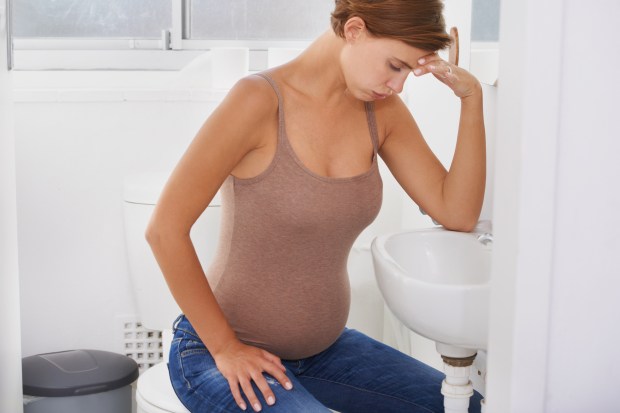What REALLY eases morning sickness – and what won’t work, according to science
From ginger to acupressure and antihistamines, study explores the best way to treat mild, moderate and severe morning sickness

For the majority of mums-to-be, their elation at learning they are pregnant is eclipsed by their misery as morning sickness sets in.
Around 85 per cent of pregnant women experience nausea and vomiting in the early stages.
But, for an unlucky three per cent, their morning sickness is more severe, and can last for longer.
Kate, the Duchess of Cambridge suffered hypermesis when she was pregnant with both her children, Prince George and Princess Charlotte.
Countless scientific studies have explored the various remedies that promise to ease the symptoms.
And now a new review of the evidence has suggested some actually can help pregnant women feel better.
Related Stories
Researchers led by Catherine McParlin at Newcastle Upon Tyne Hospitals NHS Foundation Trust examined the findings of 78 different studies.
They looked at the effectiveness of various remedies, including ginger, vitamin B6, antihistamines, anti-nausea drugs and psychotherapy.
The researchers divided the remedies into three groups.
First line treatments were those including changes to diet, adding ginger for example, as well as over-the-counter options.
Second-line treatments were drugs that were prescribed by a doctor.
Meanwhile, the third-line treatments - often reserved for those women suffering hypermesis or severe morning sickness, were those that women received in hospital.
The findings showed that for women suffering mild morning sickness, the best way to ease their symptoms is to take ginger, vitamin B6 supplements and undergo acupressure.
Acupressure is a technique used for thousands of years in China, and applies the same theory as acpuncture.
It involves placing pressure on particular acupoints to relieve disease and promote relaxation and wellness.
The researchers found that applying pressure to a spot on a woman's arm, on the inside of her wrist, helped ease the symptoms of morning sickness.
When these first-line approaches fail to help, the researchers found women suffering moderate morning sickness benefitted from taking antihistamines, in some cases alongside vitamin B6 supplements.
And the researchers found other drugs, including promethazine, marketed as Phenergan and metoclopramide, which is marketed as Reglan or Metozolv, also helped.
One of the 78 studies the researchers in Newcastle reviewed looked at the effectiveness of psychotherapy in treating morning sickness.
They found the evidence to suggest it works was not strong enough to recommend the therapy as a treatment.
The new findings also show anti-nausea drugs including ondanestron is beneficial for women with all levels of morning sickness.
For those with the most severe form of morning sickness, hypermesis - a condition the Duchess of Cambridge suffered when she was pregnant with both Prince George and Princess Charlotte - the researchers found corticosteroids can help.
But, they added, more research is needed.
The findings are published in the journal JAMA.









